U2 at 40: From teenage dreams in a kitchen jam to the top of rock's hierarchy
- Published
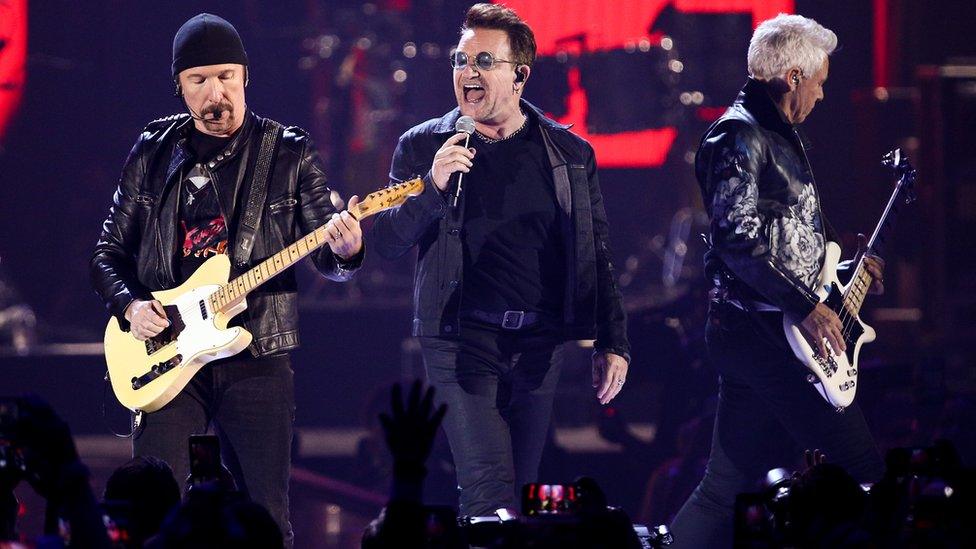
U2 have risen over 40 years to become one of the biggest and most influential bands in the world
It started in a kitchen, and they never thought it would come to this... or did they?
Four decades to the day since a cluster of innocent Irish schoolboys with cheap instruments crammed into a back room in Larry Mullen Jr's parents' home, U2 sit on top of the rock hierarchy.
Those "misfits", as their school-friend Frank Kearns calls them, included Adam Clayton, David Evans and Paul Hewson.
They had responded to 14-year-old Mullen Jr's note on a board in Dublin's Mount Temple Comprehensive: 'Drummer seeks musicians to form band'.
Saturday 25 September 1976 was the beginning of what is arguably the biggest, most adored and even most despised band in the world today.
The jockeying for position took place as Mullen Jr's drums clattered, Evans's (later the Edge) guitar snarled and Clayton, the bassist who couldn't play bass, stood coolly with "the best hair" out of the bunch, according to Neil McCormick, a friend of the band from back in the day.
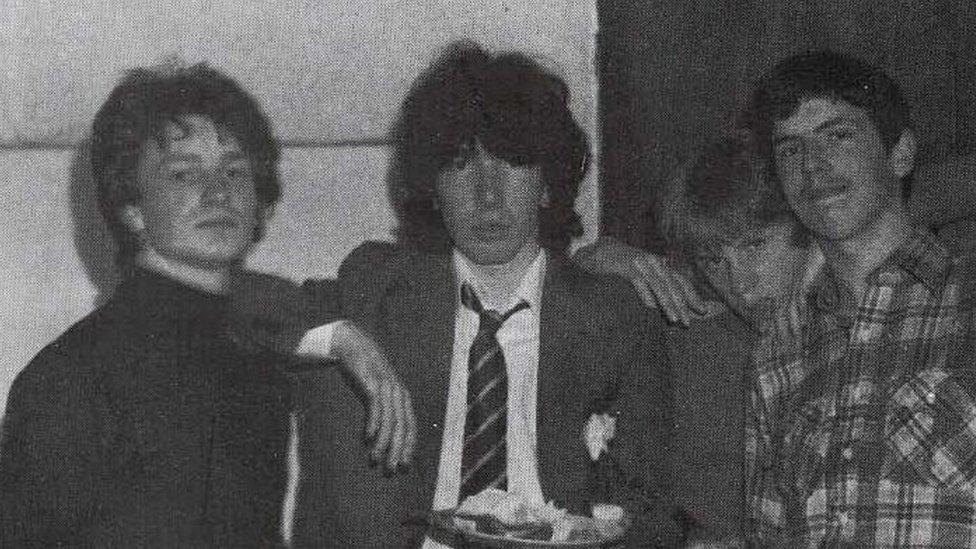
(From left) Paul Hewson, David Evans, Larry Mullen Jr and Frank Kearns met during their time at Dublin's Mount Temple Comprehensive
Neil, now a music critic with the Daily Telegraph, described how Hewson, who would soon become Bono, "went along thinking he would be a guitarist... but I would note he didn't bring his guitar".
"Whatever he says, I think his ambition lay with a microphone."
Lucked
The four teenagers colliding that day in the Artane suburb "was the miracle of U2".
"The luck is that in that kitchen 40 years ago, Bono met the Edge," Neil adds.
"There's a huge contrast between the two of them but they're very complementary characters - they are the heart of U2.
"Other people could've been in U2 as long as it had those two in it.
"But the two that they lucked into, Larry and Adam, were exactly the right mix of talent and personality to make that unit complete.
"When that happens, like when The Beatles added Ringo, that's a magical accident - a great band is a miraculous thing."
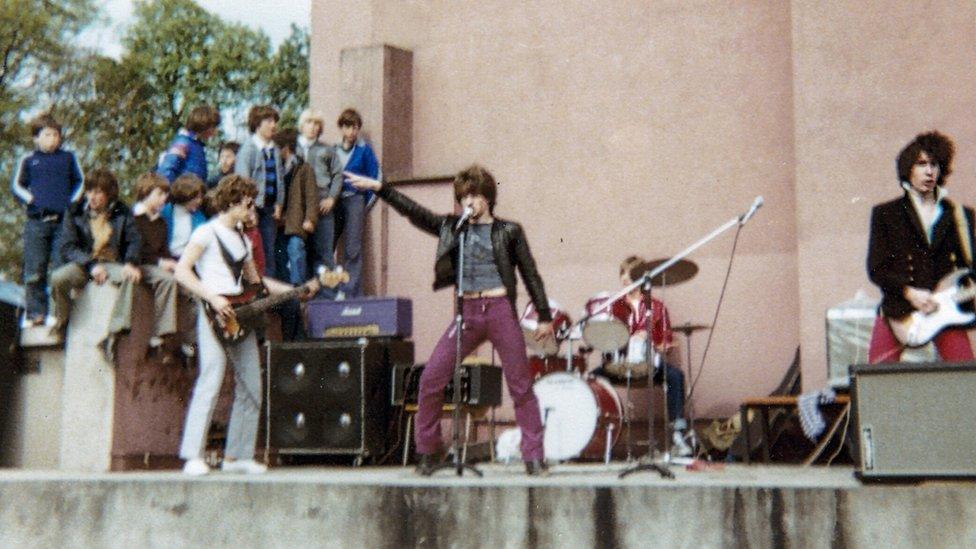
The Hype, the band that would become U2, performed their first gigs at Mount Temple Comprehensive
With the line-up settled, the rehearsals began.
The aforementioned Frank, a close pal of Mullen Jr, tells of watching a fearless foursome practise on Wednesday afternoons in Mount Temple Comprehensive, where "slashed jeans and punk-rock haircuts" were commonplace in the corridors.
"I'd never heard someone play an electric guitar, it was like magic," Frank, now a musician and producer in Dublin, says.
"I knew I was looking at a chemistry - when they came together the sum of the parts was greater, emotionally, spiritually, every way."
Wraaaaaaang!
A short time later, going by the name Feedback, they stepped onto a stage at a talent contest in the school's gymnasium.
With covers of Peter Frampton's Show Me The Way and Bye Bye Baby by the Bay City Rollers, they were "raw, exciting and up-front", especially to teenagers who had mostly grown up on a diet of run-of-the-mill folk music.
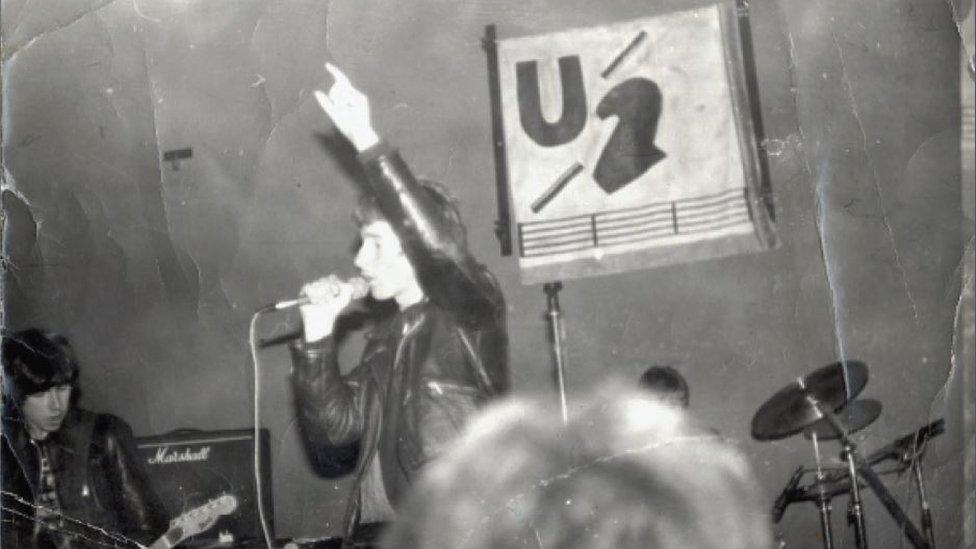
U2 became a "white-hot rock band" in a short space of time, Neil McCormick says
"Dave plugged the guitar in and played what Bono describes as the 'electrifying D chord'," Frank says.
"When the guitar rang out - wraaaaaaang! - it had this natural reverb. It was like being caught in a dream-like sequence."
Neil remembers how Bono "stamped his feet and picked up the microphone and the place went mad".
"What electrified me was an electric guitar - I said to Bono it was the first time I'd ever seen a rock band, and he said: 'That's the first time I've ever seen a rock band!'
"I was unprepared for the lightning bolt of drums, bass and electric guitar and that's what shook me in that moment."
Neil and Frank had a better view than most of the fervour that helped Feedback, which soon become The Hype and later U2, to flourish.
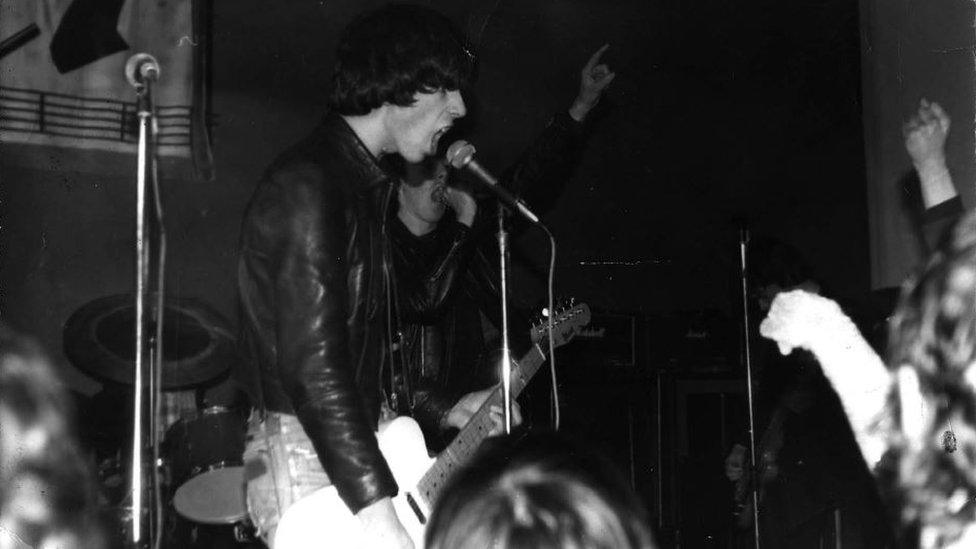
Frank Kearns and Neil McCormick performed as Frankie Corpse & The Undertakers, supporting U2 in many of their early shows
They formed Frankie Corpse and The Undertakers, with Frank on guitar and Neil on vocals, and supported them at their early gigs.
Bono and the boys had an innocence and ambition, they say, that set them apart and propelled them to the top of the Dublin scene and beyond.
Mission
Their unstoppable velocity could have broken a lesser group, Neil adds, but the pace at which U2 achieved success actually "fortified" the four of them.
"They became a white-hot rock band in what was relatively a short space of time," he says.
"From pretty early on, they realised they had a great line-up - if you find you have a good balance in a band, people are loyal to each other.
"With U2, that came from the school and their faith that protected them from the kind of things that wear bands down in the early days - sex and drugs, basically."
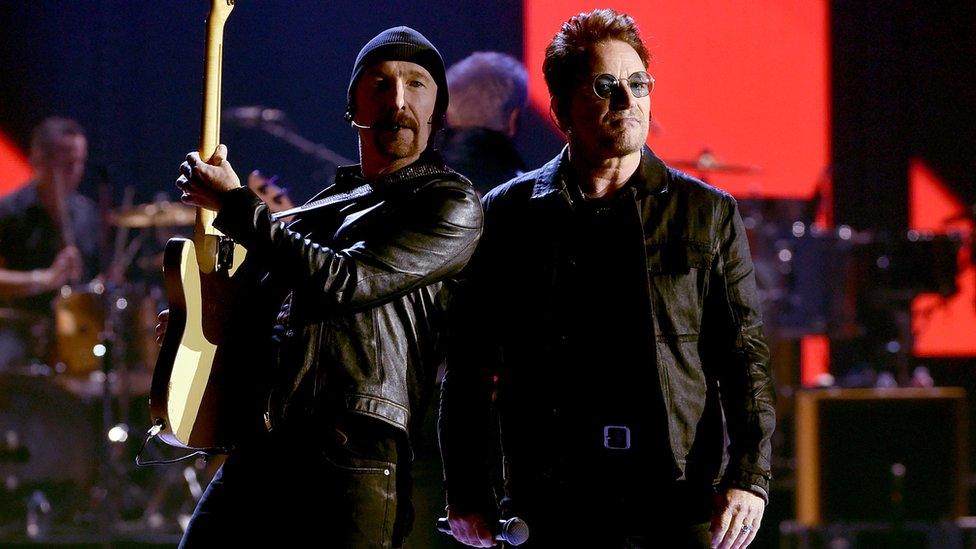
The "miracle of U2" was that The Edge and Bono met in Larry Mullen Jr's kitchen 40 years ago, according to Neil McCormick
They "were on a mission", Frank points out, and their religious faith and self-belief right from their genesis meant they were always going to fulfil the sole, lofty goal they had set themselves.
"Bono said on a number of occasions: 'We're going to be the biggest band in the world.'
"That was a statement of intent and they did whatever they had to do to achieve that.
"They were like 15-year-old priests going into the priesthood - they went into the U2-hood.
Absurd
"They had the strong fundamentalist streak and were bonded together with a series of tragedies on the family front.
"When you combine that with desire to make it in the music business, you feel like God is on your side."
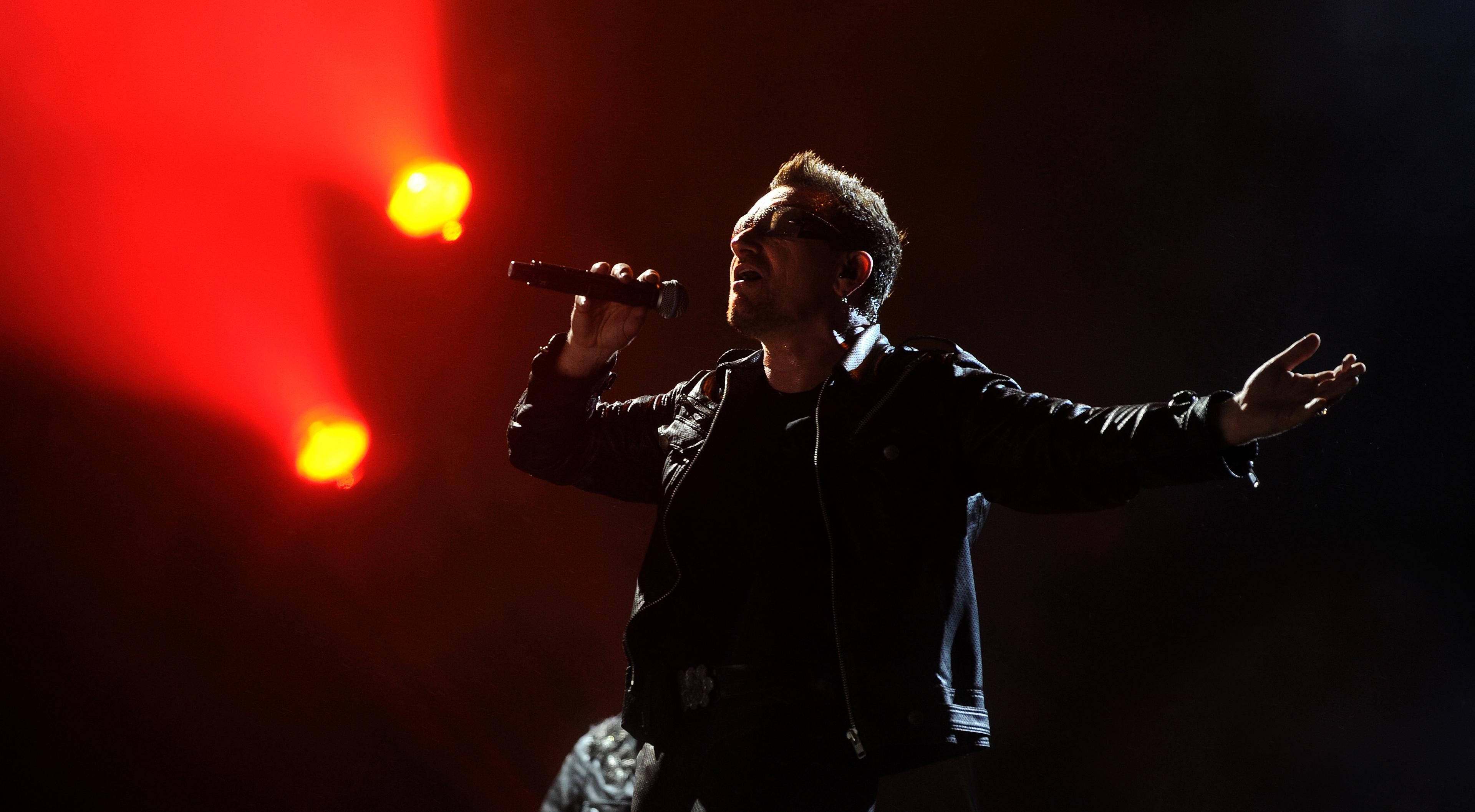
Bono laid down an early "statement of intent" that U2 would become the biggest band in the world, Frank Kearns says
With record sales in the multi-millions and global tours selling out in seconds, U2 are a supergroup in the most emphatic sense of the word.
Their togetherness - the fact that those four fellas who took to the talent show stage in September '76 are the same ones that stand together in stadiums today - has been their strength and given them that longevity of a full 40 years, Neil says.
"I saw them become what they are very fast - I've been amazed but strangely not surprised.
"It was absurd teenage dreams to think about conquering the world.
"But let's face it - teenagers are absurd, they are dreamers and their dreams are rock 'n' roll dreams."